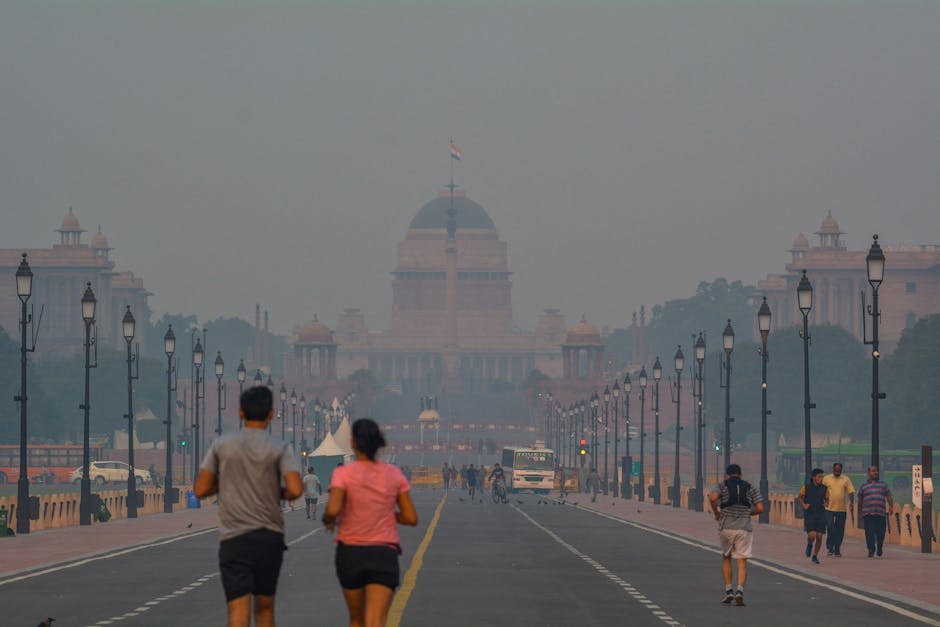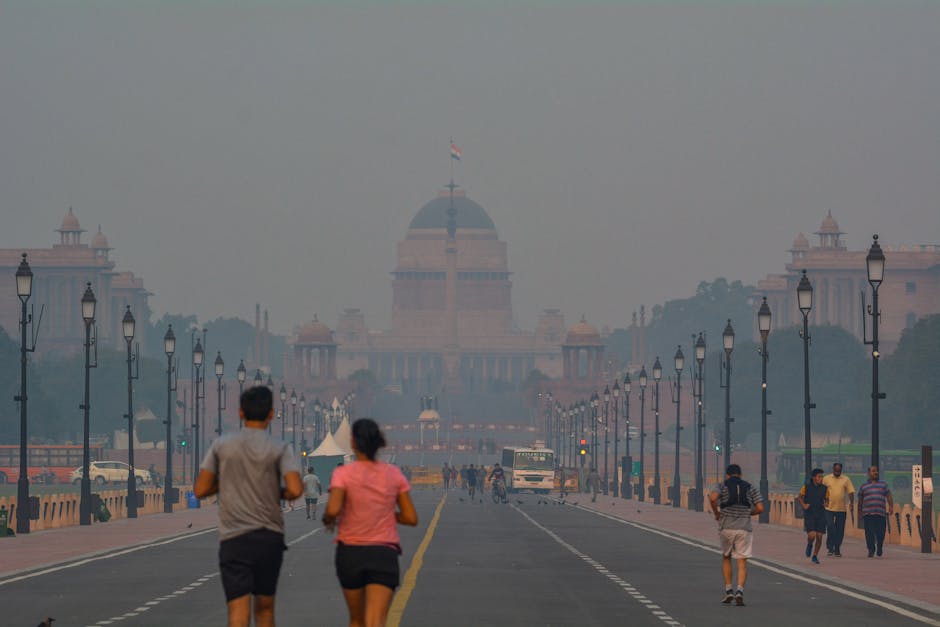New Delhi – The air quality at the Major Dhyan Chand National Stadium in Delhi, India, has reached an Air Quality Index (AQI) of 201, a level classified as ‘Poor’ and posing health risks to visitors and athletes. This reading is a significant concern for a location dedicated to sports and physical fitness.
For athletes, morning walkers, and local residents, this AQI level can cause breathing discomfort with prolonged exposure. For sensitive groups, including children, the elderly, and individuals with respiratory or heart conditions, the risks are more immediate and severe.
What Does an AQI of 201 Mean for Delhi?
An AQI of 201 signifies a high concentration of pollutants in the air, primarily fine particulate matter like PM2.5 and PM10. These microscopic particles can penetrate deep into the lungs and enter the bloodstream, leading to health issues.
Immediate effects of exposure to ‘Poor’ air quality can include:
* Coughing and throat irritation
* Shortness of breath
* Reduced lung capacity and performance for athletes
* Increased risk of respiratory infections
For a landmark like the Major Dhyan Chand National Stadium, which should be a hub for promoting health, this level of air pollution highlights the urgent environmental challenges facing Delhi.
Context: Delhi’s Ongoing Battle with Air Pollution
The poor air quality at the stadium is a reflection of the wider pollution problem across India’s National Capital Region (NCR). Key contributors to Delhi’s high AQI include vehicular emissions, industrial pollution, construction dust, and seasonal stubble burning in neighboring states.
While government frameworks like the Graded Response Action Plan (GRAP) are designed to curb pollution spikes, a reading of 201 indicates that continuous and more robust measures are necessary to ensure clean air for the city’s residents.
How to Stay Safe from Delhi’s Poor Air Quality
When the AQI is in the ‘Poor’ category, it is crucial to take precautions. If you are planning to visit the National Stadium or exercise outdoors in Delhi, follow these recommendations:
- Check Real-Time AQI: Before heading out, use a reliable app or website to check the current air quality index for your specific area.
- Wear a Protective Mask: Use a well-fitted N95 or N99 mask to filter out PM2.5 particles. Standard cloth masks are not effective against these fine pollutants.
- Time Your Outdoor Activity: If possible, exercise outdoors in the late afternoon when pollution levels are often lower compared to the early morning or evening.
- Listen to Your Body: If you feel any discomfort like chest tightness, dizziness, or unusual coughing, go indoors immediately.
- Prioritize Indoor Air: On days with high pollution, opt for indoor workouts. Using an air purifier at home can help maintain healthier air quality indoors.
The air quality reading at this iconic sports venue is a clear call to action for collective efforts to combat air pollution for the health of our city and its athletes.




